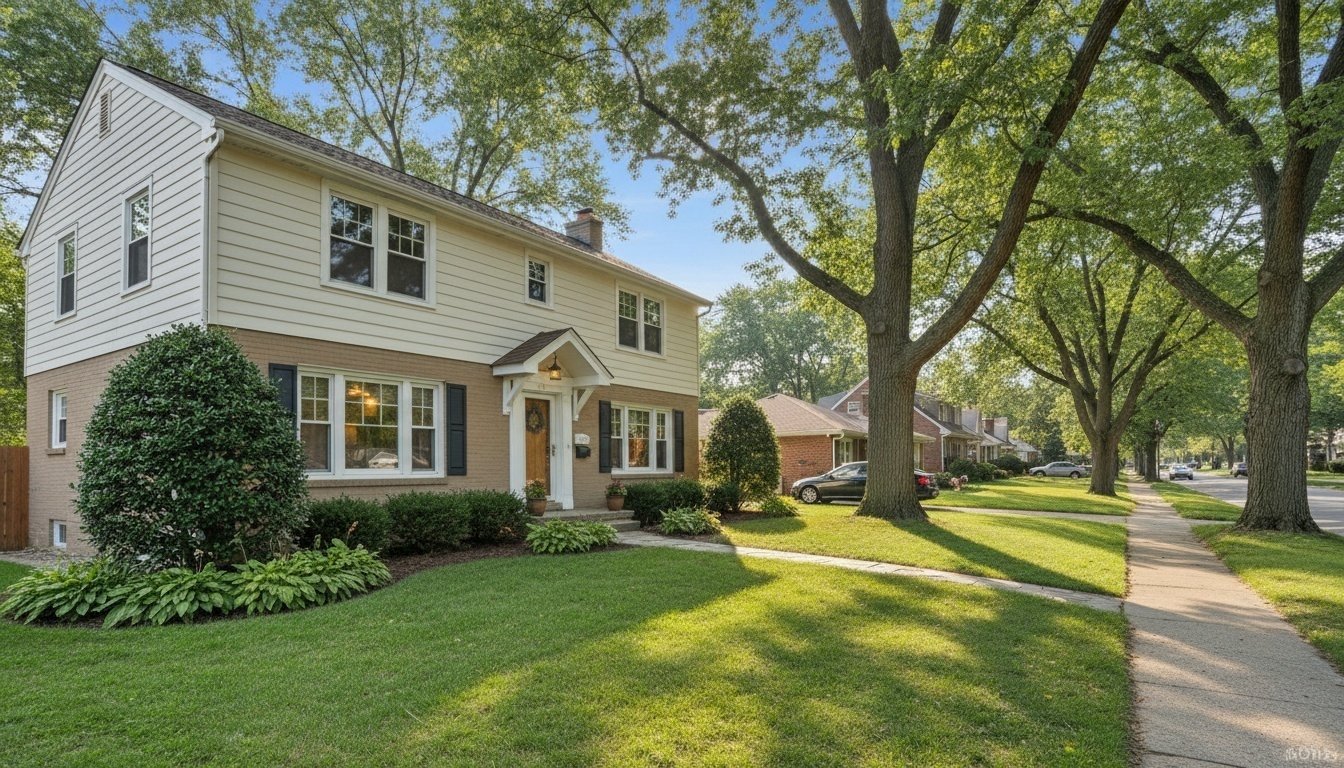Have you ever come across a property that piqued your interest, only to discover it's owned by an LLC? You're not alone. This scenario is becoming increasingly common in today's real estate landscape. Limited Liability Companies (LLCs) have surged in popularity as vehicles for property ownership, leaving many real estate professionals, potential buyers, and curious onlookers puzzled about how to identify the actual individuals behind these corporate veils.
Fortunately, there are a variety of strategies and tools available to help uncover LLC ownership, from traditional public record searches to innovative solutions like linked property analysis. In this article, we'll explore these methods and equip you with the knowledge to navigate the world of LLC-owned properties more effectively.
What is an LLC?
Before we jump into the detective work, let's get a handle on what an LLC actually is. Limited Liability Company (LLC) is a business structure combining corporate and partnership elements. LLCs offer their owners, known as members, protection from personal liability for the company's debts and obligations while providing flexibility in management and tax benefits.
Key features of LLCs include:
- Limited liability protection for members
- Pass-through taxation (in most cases)
- Fewer formal requirements compared to corporations
These features make LLCs an attractive option for property ownership, offering a balance of protection and flexibility. As we'll see, this popularity has led to an increase in LLC-held properties, creating both opportunities and challenges in the real estate market.
The Rising Popularity of LLC Property Ownership
Over the past decade, the real estate landscape has witnessed a significant shift in property ownership structures. Limited Liability Companies (LLCs) have emerged as the go-to vehicle for savvy property investors and owners. This trend isn't just a passing fad; it's rooted in several compelling advantages that LLCs offer. Let's explore the key reasons behind the surging popularity of LLC property ownership.
Asset Protection: One of the primary reasons for using an LLC to own property is the protection it offers from personal liability. If a lawsuit arises from an incident on the property, the LLC's assets are at risk, but the personal assets of the LLC members are generally shielded..jpg?width=2250&height=1178&name=Untitled%20design%20(47).jpg)
Privacy: LLCs can provide a level of anonymity for property owners. In many jurisdictions, the names of LLC members are not required to be publicly disclosed, allowing high-profile individuals or those seeking privacy to keep their ownership confidential.
Tax Benefits: LLCs offer flexibility in how they are taxed. Most are taxed as pass-through entities, meaning the profits and losses flow through to the individual members' tax returns, potentially resulting in tax savings.
Estate Planning: LLCs can be valuable tools in estate planning, allowing for easier transfer of ownership interests and potentially reducing estate taxes.
Investment Pooling: LLCs make it easier for multiple investors to pool their resources and invest in real estate, with clearly defined roles and responsibilities.
Separate Business Entities: For real estate investors with multiple properties, using separate LLCs for each property can help compartmentalize risk and simplify accounting.
As these benefits illustrate, LLCs provide a powerful combination of protection, privacy, and flexibility that traditional property ownership structures often lack. These advantages have fueled the rapid adoption of LLCs in real estate, transforming the way properties are held and managed. However, this shift also presents new challenges for those seeking to identify property owners, setting the stage for our next discussion on uncovering the individuals behind LLC-owned properties.
How to Find the Owners of an LLC
While the benefits of LLC ownership are clear, this structure can create challenges for those seeking to identify the individuals behind these entities. Whether you're a potential buyer, an investor, or simply curious about who owns a particular property, uncovering LLC owners can be a complex process. Here are some methods and resources for LLC owner lookup:
- Search State Business Databases
Start with the Secretary of State's website in the state where the property is located. Look for a "Business" or "Search Businesses" tab, then search for the LLC name. Access the state documents, particularly the articles of organization and any recent amendments or reports. Look for individuals listed as "members," as these are typically the owners. Keep in mind that the LLC might be registered in a different state, so you may need to check multiple state databases. A comprehensive list of Secretary of State offices can be found online to help with your search. - Submit a Public Information Request
If the state database doesn't provide enough information, you can often submit a public records request through the Secretary of State's website. This might be called a "Public Records Disclosure" or something similar. While many states allow electronic submissions, some may require mailed requests. Responses can take a few weeks and may involve fees, but they often provide more detailed ownership information..jpg?width=2250&height=1178&name=Untitled%20design%20(46).jpg)
- Explore Other Public Records
If other methods fall short, consider digging into alternative public records. This can include:
- Property records: Check with the county recorder's office for deeds or deeds of trust, which may reveal a representative's signature and title.
- Court records: If the LLC has been involved in legal proceedings, court documents might disclose ownership details.
- Business licenses: Depending on the property's use, associated licenses might name individuals connected to the LLC.
Remember, while these methods can be helpful, they don't always guarantee success. Many LLCs are specifically structured to maintain privacy, so uncovering ownership info can sometimes feel like trying to piece together a puzzle.
A Simpler Solution: Using PropertyReach to Unlock Contact Info for LLC and Trust-Owned Properties
Searching for the owners behind LLC or Trust-owned properties has traditionally been a time-consuming and complex process. You may have spent hours digging through state databases, public records, or even hiring third-party services to uncover this vital information. But now, PropertyReach has made it incredibly simple.
With our new LLC & Trust contact info feature, all associated contacts are available with just a single click. No more scouring multiple platforms or waiting for records to process. We've made it easy to access up-to-date contact information for LLC and Trust officers, including phone numbers, emails, and mailing addresses, directly within PropertyReach.
Here’s what makes it easier:
-
Instant Access: No need to spend hours searching other platforms. With PropertyReach, all contact information for owners and associated officers is right at your fingertips.
-
Data You Can Trust: The contact information is up-to-date and ranked by the "Date Last Seen," so you know you're reaching the right people.
-
Exportable Data: Once you’ve saved your lead, you can export the contact details, making it easier to analyze or import into a CRM for marketing outreach.
This new feature significantly cuts down on your research time, allowing you to move faster and connect directly with the decision-makers behind properties owned by LLCs and trusts. Instead of wasting time with multiple searches across different platforms, you can now access everything you need with a single click on PropertyReach.
By leveraging PropertyReach's powerful contact info feature, you’ll have the upper hand in your next real estate deal. It's time to stop playing detective and spend more time closing deals.
Ready to get started? Try your first 30 days for only $10 and unlock contact information for up to 120k motivated property leads.


